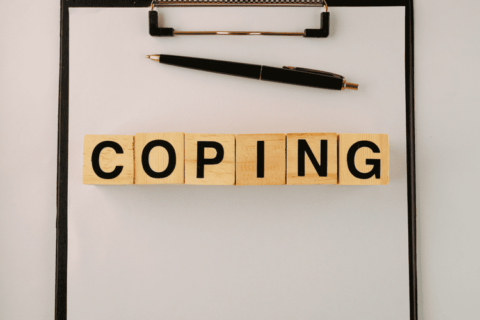7 Steps to Help you Cope with Stress
Stress is a normal part of the human condition. Everyone deals with stressful situations from time to time, and different people experience stress in different ways. It’s important to learn how to deal with stress so that it doesn’t overwhelm you, because too much stress can be harmful. Can stress make you sick? Chronic stress has been linked to conditions like heart disease, stroke, depression, weight gain, memory loss, and even premature death. Fortunately, learning how to relieve stress is possible, and we’ve got some tips to help you cope with stress.
The effects of too much stress are well-documented. People who are under constant stress can’t function as well as they should, and over time their physical and mental health can begin to suffer. What are the symptoms of stress? Signs of chronic stress include poor sleep for prolonged periods of time, severe headaches, unexplained weight gain or weight loss, feeling isolated, withdrawn or worthless, constantly feeling angry or irritable, excessive worry or obsessive thoughts, drug use or heavy drinking, and an inability to concentrate. If any of this sounds familiar, it’s time to be proactive about managing your stress.
What is stress? It can be difficult to define, but having a clear understanding of stress can help you find effective methods of stress relief. First, it’s important to note that stress is not necessarily a bad thing. It can be defined as change that causes a strain either physically, emotionally, or psychologically. This can be a positive force, helping us stay alert, motivated, and able to avoid danger. It becomes a problem when the stress is constant, causing the body’s stress response to be continually activated. Two stress hormones, adrenaline and cortisol, can raise your blood pressure, increase your heart rate, and cause your blood sugar to spike. Without periods of rest, physical, emotional, and psychological stress can cause wear and tear on the body. When this happens, it’s important to have strategies you can use to combat the effects of stress.
- Breathe deeply. Notice your feelings so that you can name them and find a way to calm yourself. Take some deep, calming breaths, close your eyes, and imagine yourself somewhere relaxing. Do this for five or 10 minutes, until you feel you’ve gotten your emotions under control. Meditation, yoga, and mindfulness practices can also help alleviate stress.
- Take a break. Even if your to-do list seems insurmountable, it’s important to pencil in some downtime. Do something relaxing, like listening to your favorite music or spending some time in nature. Take a bath or shower, get a massage, or write in a journal. Sometimes, even just taking a short break to stretch your muscles can make a big difference. If you have the time, take a vacation, leaving your laptop and cellphone behind, and you may find you’re happier and more productive when you return.
- Build a strong support system. Spending time with other people releases stress-reducing hormones. Surrounding yourself with supportive people is good for your mental and physical health. Make time for the important people in your life, and consider reaching out to others through volunteer work, taking a class, or joining a group. There’s also evidence to suggest that having a companion animal can reduce stress and anxiety.
- Do something that you enjoy. Set aside time for hobbies, spending part of each day doing something that makes you feel good. It could be something creative, like knitting or art, an outdoor activity like gardening or golf, or even something as simple as watching a movie, doing puzzles, or playing cards. What’s important is that it’s something that makes you feel calm and relieves your stress.
- Lead a healthy lifestyle. Eat a diet full of nutrient-dense, whole foods like vegetables, fruit, whole grains, lean proteins, and healthy fats. Avoid processed food and refined sugar, and don’t skip meals. Exercise regularly, setting reasonable fitness goals like getting at least 20 minutes of exercise every day. Get enough sleep and limit stimulants and alcohol.
- Identify your triggers so that you can work to eliminate them. What are the biggest stressors in your life? If you’re having trouble identifying what’s causing your stress, try keeping a stress journal to see if you can determine a pattern in your stress. Try to find ways to eliminate or reduce stressors, to make your life more manageable.
- Talk to someone about your stress. This can be a trusted friend or family member, a member of the clergy, or a doctor or therapist. You can also talk to yourself, being careful to only choose positive self-talk, encouraging yourself instead of speaking negatively. Try to keep a sense of humor and let go of things you can’t control.
Whether you need a primary care physician or help managing your stress, Brevard Health Alliance, Inc. is here for you. Brevard County’s only Federally Qualified Health Center, BHA offers extensive health care services on a sliding-fee scale so that we can treat residents regardless of their ability to pay. We’re committed to providing an extraordinary quality of care for our patients in order to improve the health status of Brevard County. Our focus is on continually improving the quality and efficiency of our care, and on ensuring that every patient we serve is heard, encouraged, and respected. As your family health care provider, we strive to provide not just acute care but also preventive care and health care related education. Our board-certified physicians, advanced practice nurse practitioners, and physician assistance provide primary care that includes well child checkups, well woman care, and physicals, along with chronic disease management. In fact, since 2005 we’ve provided not only primary care services, but also behavioral health services, dental services, diagnostic services, resource management services, pharmacy services, women’s health care and obstetrics, Hepatitis C and HIV services, extended hours pediatric walk-in care, and specialty referrals. For more information, to find a location, or to make an appointment, contact us through our website.



















































































































































